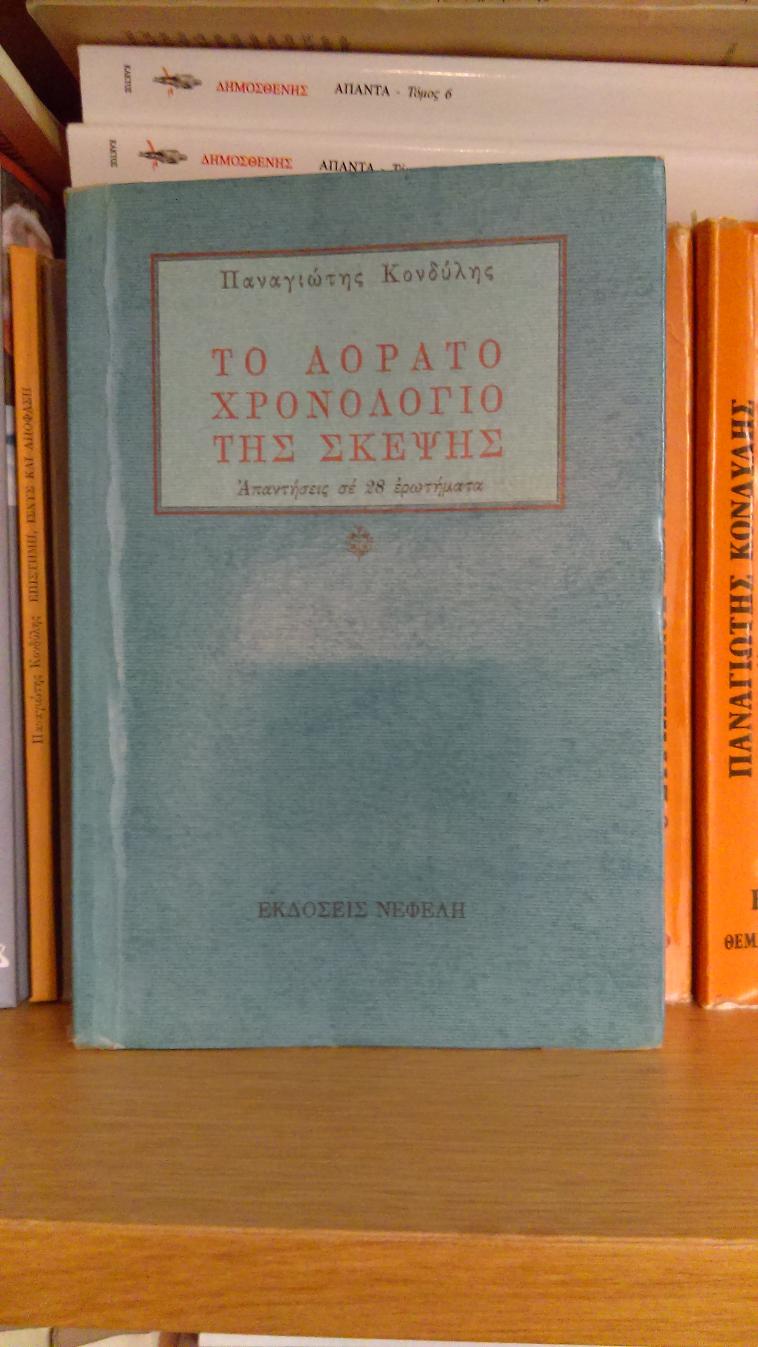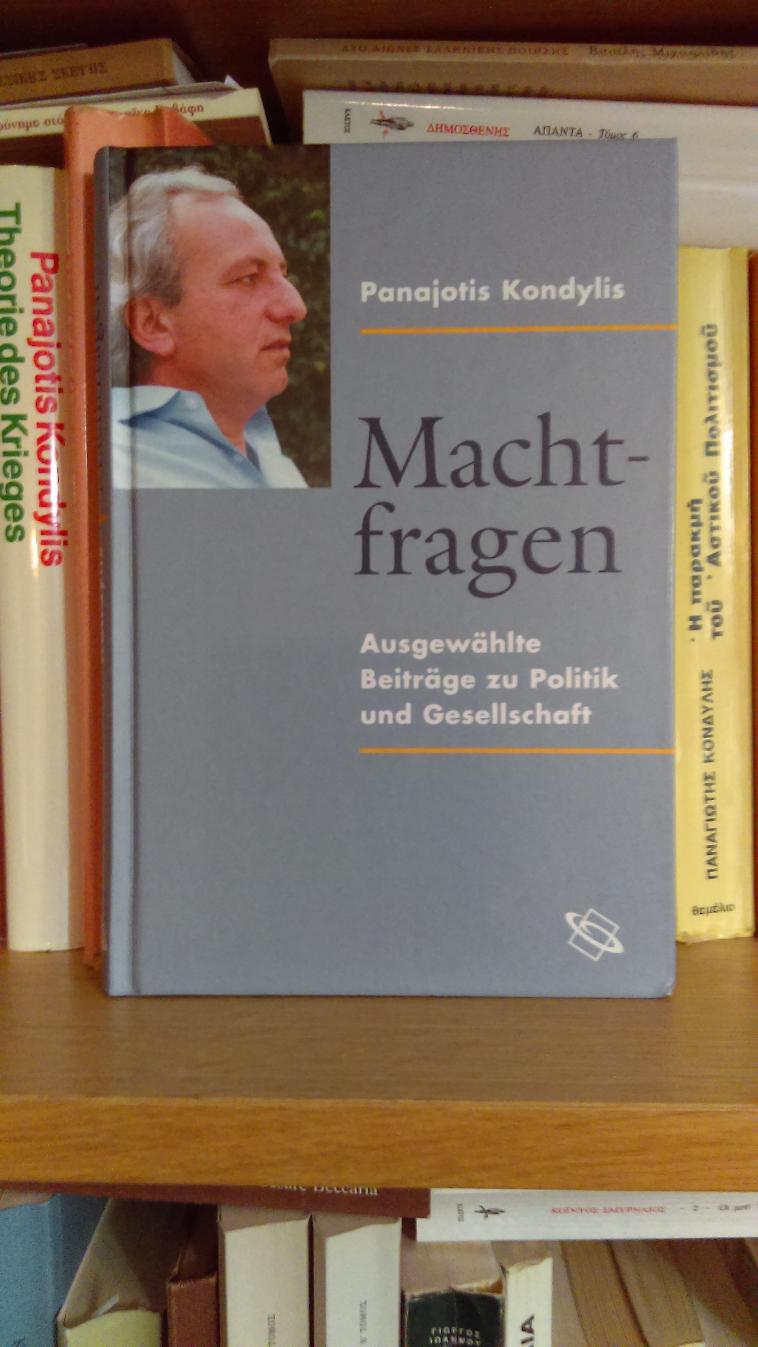Disclaimer: Nothing within this page or on this site overall is the product of Panagiotis Kondylis's thought and work unless it is a faithful translation of something Kondylis wrote. Any conclusions drawn from something not written by Panagiotis Kondylis (in the form of an accurate translation) cannot constitute the basis for any valid judgement or appreciation of Kondylis and his work. (This disclaimer also applies, mutatis mutandis, to any other authors and thinkers linked or otherwise referred to, on and within all of this website).
Panagiotis Kondylis - Answers to 28 questions

|
Answers to 28 questions.pdf Size : 958.537 Kb Type : pdf |

The book below contains the first of the three interviews conducted in German (otherwise, it's a reprint of Power and Decision, and, "Science, Power and Decision").

"... a society of people cannot live in a state of permanent war without disintegrating, simultaneously however, it cannot help constantly giving birth to conflict from its womb (bloody or not). Friendship and peace are in respect of the situation humaine just as little to be disregarded as enmity and struggle (war). We are not dealing here with a matter of faith, but a banal truth which is to be learnt just from reading the daily newspapers. Whoever cannot admit and digest that, may be a great prophet or, shall we say, a great philosopher (or social theorist) - he is not suitable as an analyst of human affairs".
"The fusion of strict conceptual processing (elaboration) and profound historical analysis, with a first-hand knowledge of real facts, constitutes for me not merely a methodological ideal, but an elementary prerequisite of a positioning which wants to be taken seriously, which has, i.e., the ambition and the possibility of offering its studier an essential knowledge of the world in which he lives. The production of ahistorical and unhistorical theory is basically an easy matter, and that is why so many, famous and unknown or little-known theorists, indulge in it, wanting to believe that the substitution of an arbitrary concept with another arbitrary concept, or a new combination of concepts, is an important contribution to thought. All of that constitutes symptoms of a permanent intellectual(-spiritual) adolescence. The intellect(-spirit) reaches its maturity when it is in a position to give a concrete analysis of a concrete situation. Only the clueless will call that narrowness and empiricism. Because precisely the concrete analysis of concrete situations shows the true texture and usefulness of conceptual and methodological tools".
Undoubtedly, the best introduction to Kondylis's thought are his answers to questions put to him by three different interviewers. In these answers the reader will find outlines of some of the key themes in the work of this unique "observer of human affairs", including as regards his conception of social ontology; the distinction between Is and Ought; the relationship between scientific knowledge and method; the confusion arising between scepticism and Platonism which overshadows much of historical philosophical discourse; the distinctive features of the European New Times and its coming to an end; human rights as propaganda and not as reality; thoughts on Schmitt, Spengler, Fukuyama, Huntington et al.; references to Kondylis's own intellectual development and life; as well as touching tributes to Spinoza, Marx and Weber.
Note: most of the words or phrases in parantheses in the translations are the translator's alternative choices in English, and the reader should not view them as part of Kondylis's discursive style in either German or Greek.